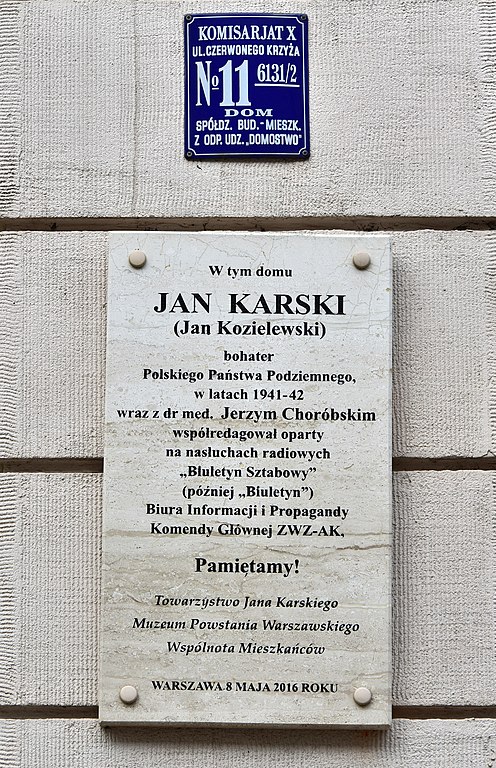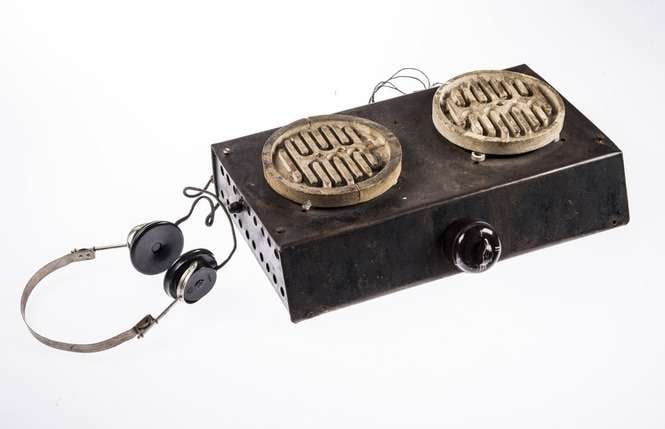A clandestine radio set used by the resistance for listening to English and French broadcasts during the Second World War has been discovered hidden in a Warsaw apartment, at an address used by the famous underground courier Jan Karski.
The radio, which had been disguised as an electric stove to avoid detection and was buried under the floorboards beneath a heavy wardrobe for eight decades, has now been added to the collection of the Warsaw Rising Museum.
The Philips radio was found under a removable parquet floor tile during renovation of the apartment at 6 Czerwonego Krzyża (Red Cross) Street, the Mazovia Provincial Monument Preservation Office (MWKZ) revealed in a Facebook post.
It was used by the headquarters of the Polish underground resistance movement – first the Union of Armed Struggle, and later the Home Army – to listen in on broadcasts from abroad. The main stations were the BBC and Radio Londres, which broadcast in French from London to occupied France.
Concerns about being uncovered resulted in the radio set being transformed into an electric stove, which could still be used for picking up broadcasts, according to the MZKZ post.
Because of the historic nature of the building, the office had previously given permission for the renovation work. During the war, Karski, who acted as a courier to the Polish government-in-exile and its allies, worked at the same address in 1941 and 1942, when Warsaw was under German-Nazi occupation.
Karski and his colleague Jerzy Choróbski used a similar set to listen to broadcasts, writing information bulletins based on what they heard. On 7 December 1941, for example, they were the first in Poland to hear of the attack on Pearl Harbour.

Plaque commemorating the work of Jan Karski and Jerzy Choróbski at Czerwonego Krzyża 6, formerly number 11, in Warsaw (Wikimedia/Adrian Grycuk under CC BY-SA 3.0 PL)
Their Philips radio was also kept under the floorboards and turned into an electric stove to avoid detection after a series of raids, reported Dziennik Wschodni in 2016, when a plaque commemorating Karski’s work was unveiled outside the building.
The new find has been transferred to the collection of the Warsaw Rising Museum, dedicated to the uprising in 1944, when the underground resistance led by the Home Army attempted to liberate the city from German occupation.
Main image credit: Facebook/Mazowiecki Wojewódzki Konserwator Zabytków

Ben Koschalka is a translator, lecturer, and senior editor at Notes from Poland. Originally from Britain, he has lived in Kraków since 2005.




















